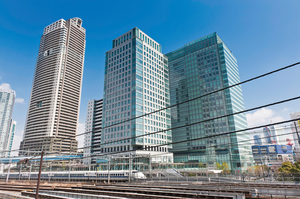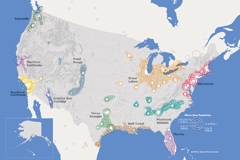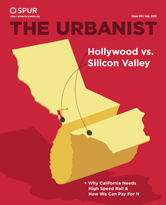

A much cited essay by the UCLA Anderson Forecast, which concludes that the high-speed rail corridor connecting Tokyo and Osaka did not generate discernible economic benefits to the region it serves, from its opening in 1964 to 1990, is flawed. Based on the findings, the study's authors argue that California's high-speed rail system will not generate the significant economic benefits that the California High Speed Rail Authority's business plan predicts. However, the methodology adopted in the Anderson study is questionable and the comparability of Japan in the 1960s to California in the future is doubtful.
Read Regional Plan Association's critique of Anderson Forecast.
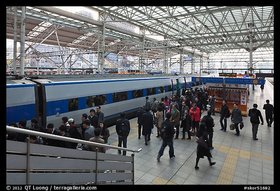 A recent survey
conducted by the American Public Transportation Association reveals
that a majority of people surveyed would be willing to choose high-speed
rail over air or car travel if it were available. These results come at
a time when the opportunity to expand mobility in the nation through
investing in high-speed rail systems has never been greater, and
confirms that many Americans understand the potential benefits and
convenience of fast intercity train travel.
A recent survey
conducted by the American Public Transportation Association reveals
that a majority of people surveyed would be willing to choose high-speed
rail over air or car travel if it were available. These results come at
a time when the opportunity to expand mobility in the nation through
investing in high-speed rail systems has never been greater, and
confirms that many Americans understand the potential benefits and
convenience of fast intercity train travel.
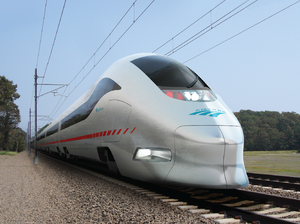 On
Monday, Amtrak released an updated report on improving the Northeast
Corridor that builds on several years of planning work. The report, The Amtrak Vision for the Northeast Corridor
(PDF), summarizes Amtrak's plans to upgrade the existing corridor and
build a new high-speed rail alignment - concepts that were outlined in
two previous reports published by Amtrak in 2010, The Northeast Corridor Infrastructure Master Plan and A Vision for High-Speed Rail in the Northeast Corridor. This new, updated report revises and integrates these two plans into a single, comprehensive investment program.
On
Monday, Amtrak released an updated report on improving the Northeast
Corridor that builds on several years of planning work. The report, The Amtrak Vision for the Northeast Corridor
(PDF), summarizes Amtrak's plans to upgrade the existing corridor and
build a new high-speed rail alignment - concepts that were outlined in
two previous reports published by Amtrak in 2010, The Northeast Corridor Infrastructure Master Plan and A Vision for High-Speed Rail in the Northeast Corridor. This new, updated report revises and integrates these two plans into a single, comprehensive investment program.
 A new report released this week by the American Public Transportation Association entitled, "Opportunity Cost of Inaction: High-Speed Rail and High Performance Passenger Rail Service,"
addresses just that question: what does the U.S. stand to lose, both in
terms of costs incurred and benefits forgone, by not investing in
high-speed rail between its largest metropolitan areas? APTA's report
concludes that the stakes are indeed high - on the order of tens of
billions of dollars.
A new report released this week by the American Public Transportation Association entitled, "Opportunity Cost of Inaction: High-Speed Rail and High Performance Passenger Rail Service,"
addresses just that question: what does the U.S. stand to lose, both in
terms of costs incurred and benefits forgone, by not investing in
high-speed rail between its largest metropolitan areas? APTA's report
concludes that the stakes are indeed high - on the order of tens of
billions of dollars.
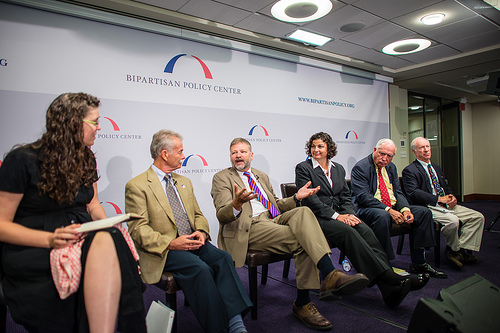
Watch America 2050 director Petra Todorovich present RPA's report, "Getting Infrastructure Going: Expediting the Environmental Review Process," followed by a panel discussion moderated by Newsweek's Megan McArdle, featuring Will Kempton, Diana Mendes, Dr. Peter Ruane, and Jim Tripp. The event was co-hosted by the Bipartisan Policy Center, Regional Plan Association, and the Eno Center for Transportation. Video after the jump.







